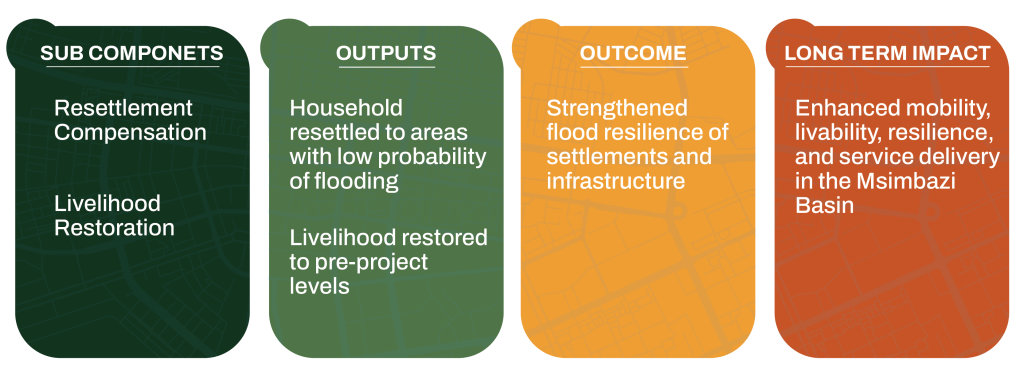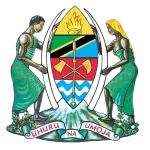Resettlement
Resettlement
Preventative Resettlement of Flood-Prone Communities
This component will finance the carrying out of preventive resettlement of low-income flood-prone communities in the lower Msimbazi River Basin. An estimated 6,356 Project Affected Households, including 3,780 owners and 2,576 tenants, with a total of 3,564 project-affected people (PAP) will be relocated to safe areas. The resettlement includes:
Acquisition of land, the payment of compensation to PAP, prioritizing in situ and in-kind resettlement options for those being relocated to reduce the likelihood of returning to similar conditions in flood prone areas
Livelihood Restoration Program to complement the relocation of households from flood-prone areas and ensure that PAP livelihoods are maintained at/or above pre-project level
Resettlement Compensation
This will finance resettlement compensation for flood-prone households. The eligible compensation is defined under the Resettlement Action Plan based on the entitlements provided in the Resettlement Policy Framework and are consistent with the World Bank Environmental and Social Standards.
For those that will be relocated from the flood prone area, the options provided would minimize livelihood disruption and provide secure land in non-flood prone areas. They include provision of housing and land located in the Dar es Salaam Metropolitan area.
Several areas are nearby the current area while others are within 10 km away and provided with supporting services and land tenure. A structured consultation and outreach program will provide the PAPs informed choices and support the process of implementation of the program. This will finance all the compensation provided under the Resettlement Action Plan including but not limited to:
(i) Housing materials, construction, and service infrastructure;
(ii) Cash compensation;
(iii) Land purchase; and
(iv) Legal, Financial and other related fees.
Livelihood Restoration
This subcomponent will finance a Livelihood Restoration Program that will be implemented in parallel with Resettlement Action Plan compensation and relocation. Ninety percent of PAP to be resettled earn livelihoods in the informal economy, largely petty trading and vending, and livelihoods are dependent on their current location near the Dar es Salaam central business district. Relocation from the area could impact PAP livelihoods. The livelihood restoration program was designed to complement the relocation of households from flood-prone areas and ensure that PAP livelihoods are maintained at/or above pre-project level. This subcomponent will finance consultant services, equipment and works, and training related to the implementation of this program.


